

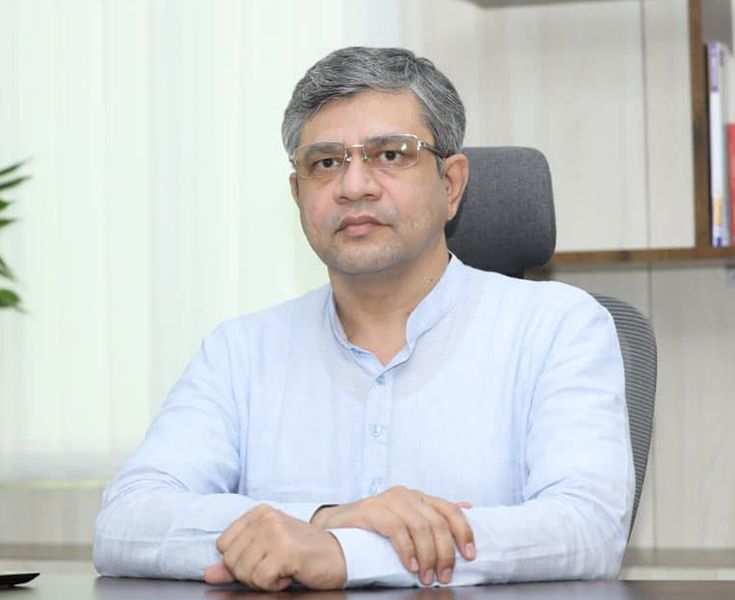
Union Minister Ashwini Vaishnaw stated that the NDA government is bound to follow the Constitution drafted by BR Ambedkar, which does not include any provision for creamy layer in SC/ST reservation. The Union Cabinet, chaired by Prime Minister Narendra Modi, discussed the recent Supreme Court ruling on sub-categorisation of SC/ST reservation. The top court ruled that states can sub-classify SC/STs and even identify the creamy layer to exclude them from affirmative action, but the Union Minister ensured that the government is committed to Ambedkar's constitutional provisions.
Supreme Court Ruling on Creamy Layer Exclusion from SC/ST Reservation: A Deeper Dive
Background
The term "creamy layer" refers to individuals within marginalized communities who have achieved a certain level of socioeconomic success. Historically, the creamy layer concept has been applied to SC/ST reservation policies to exclude those who are no longer considered economically backward. However, the recent Supreme Court ruling has created a controversy.
Supreme Court Ruling
In May 2022, the Supreme Court ruled that states can sub-categorize SC/ST communities and identify a creamy layer to exclude them from reservation benefits. This decision was based on the argument that creamy layer individuals have already benefited from reservation and should not continue to access it.
Government's Response
The Union Cabinet, chaired by Prime Minister Narendra Modi, has stated that it is bound by the Constitution drafted by B.R. Ambedkar, which does not include any provision for a creamy layer in SC/ST reservation. Union Minister Ashwini Vaishnaw emphasized that the government is committed to Ambedkar's constitutional provisions.
FAQs
1. Why has the creamy layer concept been applied to SC/ST reservation?
To ensure that reservation benefits reach the most economically disadvantaged individuals within marginalized communities.
2. What is the rationale behind the Supreme Court's ruling?
To prevent individuals who have already achieved socioeconomic success from continuing to benefit from reservation at the expense of those who are still in need.
3. What is the government's position on the ruling?
The government is committed to Ambedkar's constitutional provisions, which do not include a provision for creamy layer exclusion in SC/ST reservation.
4. What are the potential implications of implementing a creamy layer in SC/ST reservation?
It could reduce the number of individuals who benefit from reservation, thereby undermining the objective of empowering marginalized communities.
5. What is the historical precedent for the creamy layer concept in reservation?
The concept was first introduced in OBC (Other Backward Classes) reservation in 1993 to address concerns about the perpetuation of privilege within marginalized communities.
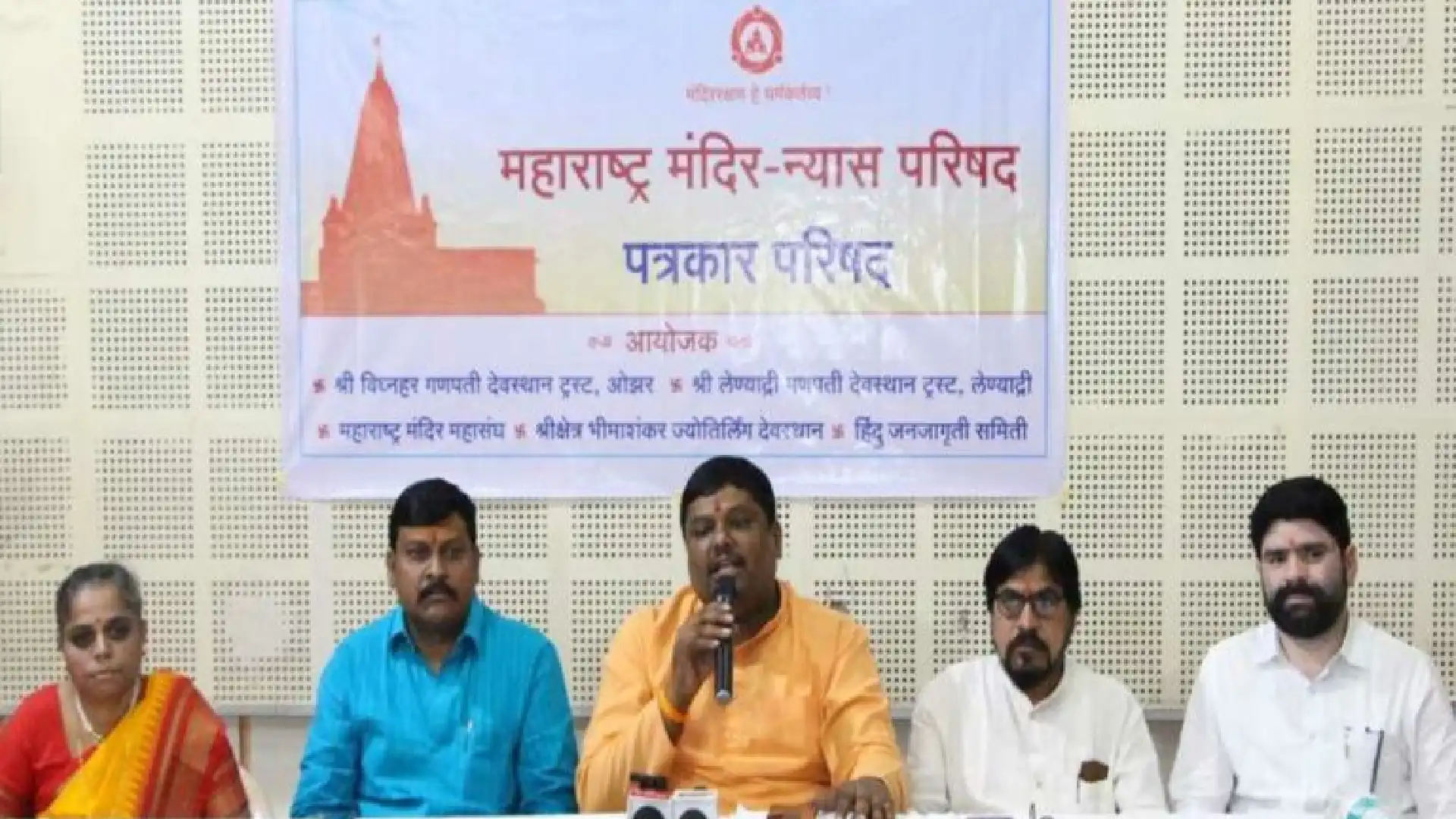
The third Maharashtra Mandir Nyas Parishad, attended by over 875 temple representatives, passed resolutions including conducting ‘Collective Aarti’ weekly and urging the government to free all temples in Maharashtra from state control. The event was held in Shirdi and was attended by key leaders and advocates of temple preservation. Key demands such as fast-tracking court cases regarding Kashi and Mathura and declaring temple premises as ‘alcohol and meat-free zones’ were also made. The National Organiser of the Mandir Mahasangh, Mr. Sunil Ghanwat, has urged the government to take prompt action on these resolutions.
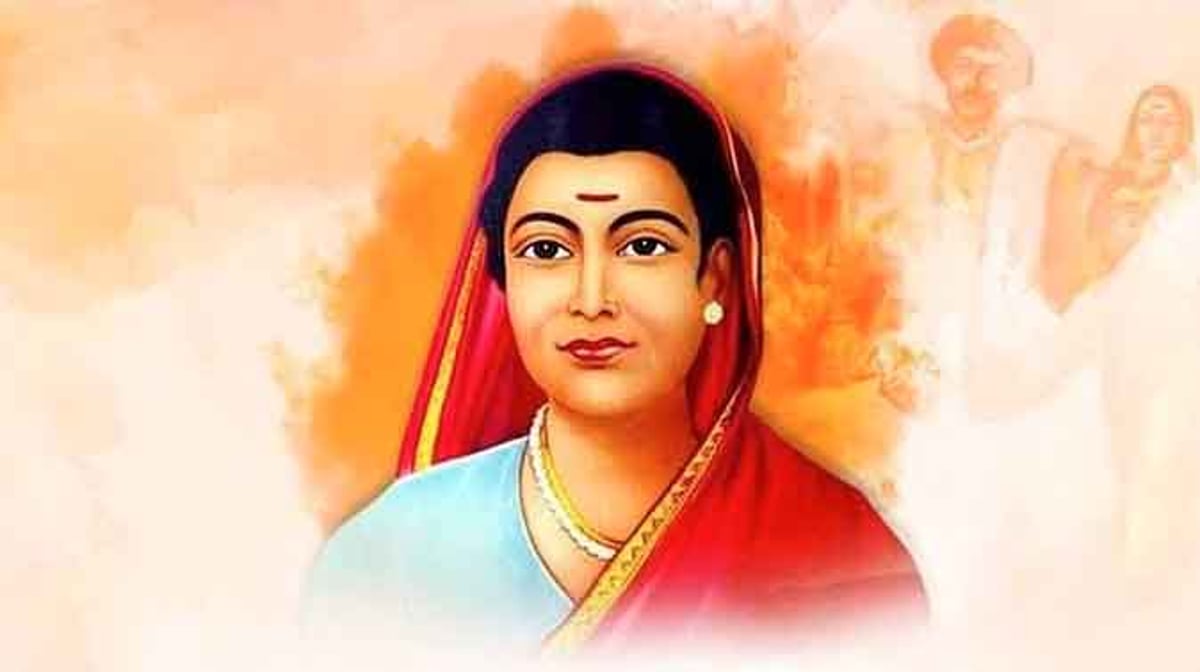
On the 194th birth anniversary of Savitribai Phule, Nagar Kurnool MLA Dr. Rajesh Reddy emphasized the importance of following her ideals during an event organized by the District Education Department. He lauded the state government's declaration of January 3rd as Women's Teachers' Day and its commitment to realizing Savitribai's vision for social equality. In the presence of District Collector and Education Officer, several women teachers were honored and a student dressed as Savitribai Phule received special recognition.

Tensions have been high in Manipur's Kangpokpi district for the past week, leading to a violent attack on the office of the Superintendent of Police on Friday. Videos and images emerging from the town show armed individuals dressed in camouflage and damaged vehicles on the premises. The violence follows a confrontation between security forces and Kuki-Zo women in the district earlier in the week, which has sparked protests and demands for the removal of joint security forces stationed in the area. While the situation has been brought under control, locals estimate that 15 people from the mob were injured.
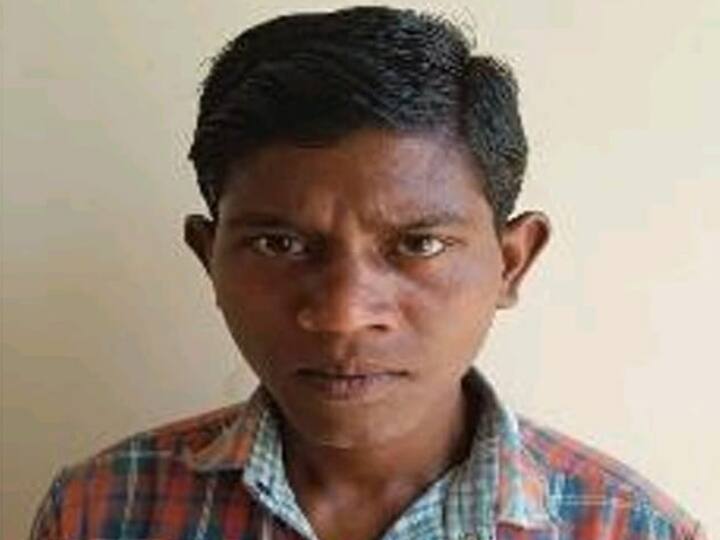
Mukesh Chandrakar, a 28-year-old independent journalist, was found dead in a septic tank on a contractor's premises in Bijapur after receiving a call from the contractor's cousin to meet them. Mukesh's body was discovered after his brother filed a police complaint when he did not return from the meeting. Authorities are investigating if his death is connected to any of his recent journalistic work in the Bastar region.

In 2023, the US State Department released an annual report revealing that President Joe Biden and his family received expensive gifts from foreign leaders. The most valuable gift was a $20,000 diamond from Indian Prime Minister Narendra Modi, given to First Lady Jill Biden. Other expensive gifts included a $18,000 astrograph received by CIA Director William Burns. However, most of the reported gifts were destroyed, as per federal law.
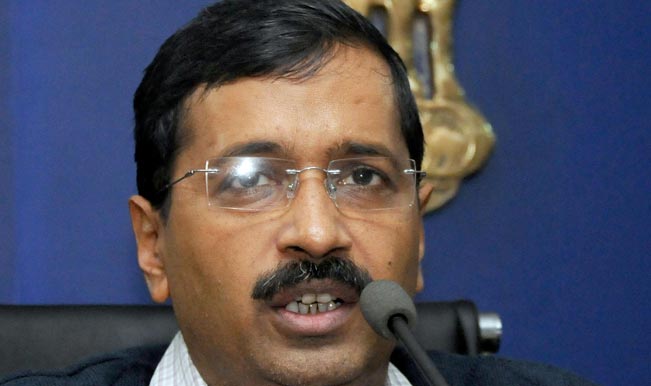
Alka Lamba, former AAP leader and current President of AICC's Mahila Congress, has been announced as the Congress candidate for the Kalkaji seat in the 2025 Delhi assembly elections. Lamba, who was previously a legislator from Chandni Chowk, returned to Congress in 2019 after resigning from AAP. In her campaign launch, she criticized AAP's governance and vowed to challenge CM Atishi on key issues such as pollution, crime, and unemployment. Lamba's nomination adds to the intense competition between AAP and Congress, with both parties choosing prominent leaders as their candidates.
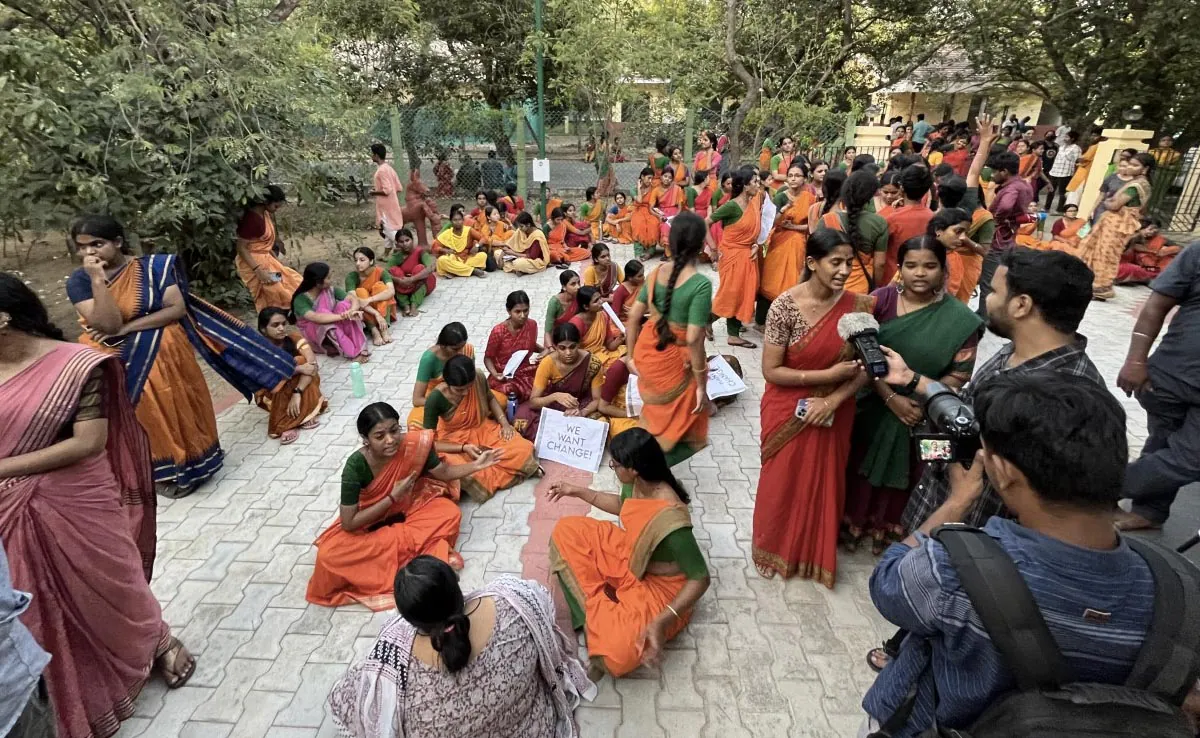
The arrest of one Maddilety, a relative of the Deputy CM of Andhra Pradesh, has sparked controversy in Yemmiganur, Kurnool district. Maddilety, who worked as a librarian in a girls' college, was accused of molesting a student. Despite previous complaints, the college principal did not take any action, leading to a physical attack on him by the student's parents. Students are now demanding the removal of all male teachers from the college, claiming that they are being dismissed whenever they raise harassment complaints.

As Prime Minister Narendra Modi officially kicked off the BJP's campaign for the upcoming Delhi Assembly elections, he slammed the current AAP government and their governance model. Modi confidently expressed his confidence in winning Delhi, a state that the BJP has not held power in for over 25 years. He also emphasized the initiatives and projects undertaken by the Central government for the betterment of Delhi, countering the schemes offered by the AAP. With Modi at the helm, the BJP aims to defeat the "aapda (disaster)" that the AAP has brought upon Delhi.

"Delhi Continues to Suffer from 'Very Poor' Air Quality, Airport Issues Advisory" - The air quality in Delhi has been in the 'very poor' category for four consecutive days, impacting visibility and causing delays and cancellations at the city's airport. With thick smog and dense fog engulfing the capital, the Delhi airport has issued an advisory for passengers to contact their airlines for any potential disruptions in their travel plans. "Bickering Between AAP and BJP Over Delhi's Electoral Roll" - Ahead of the assembly elections in Delhi, the Bharatiya Janata Party (BJP) has accused the Aam Aadmi Party (AAP) of tampering with voter registration details, while AAP has dismissed the allegations as an attempt to delete names of voters from certain communities. The two parties continue to trade barbs over the issue, with the BJP demanding action from the Election Commission of India (ECI).
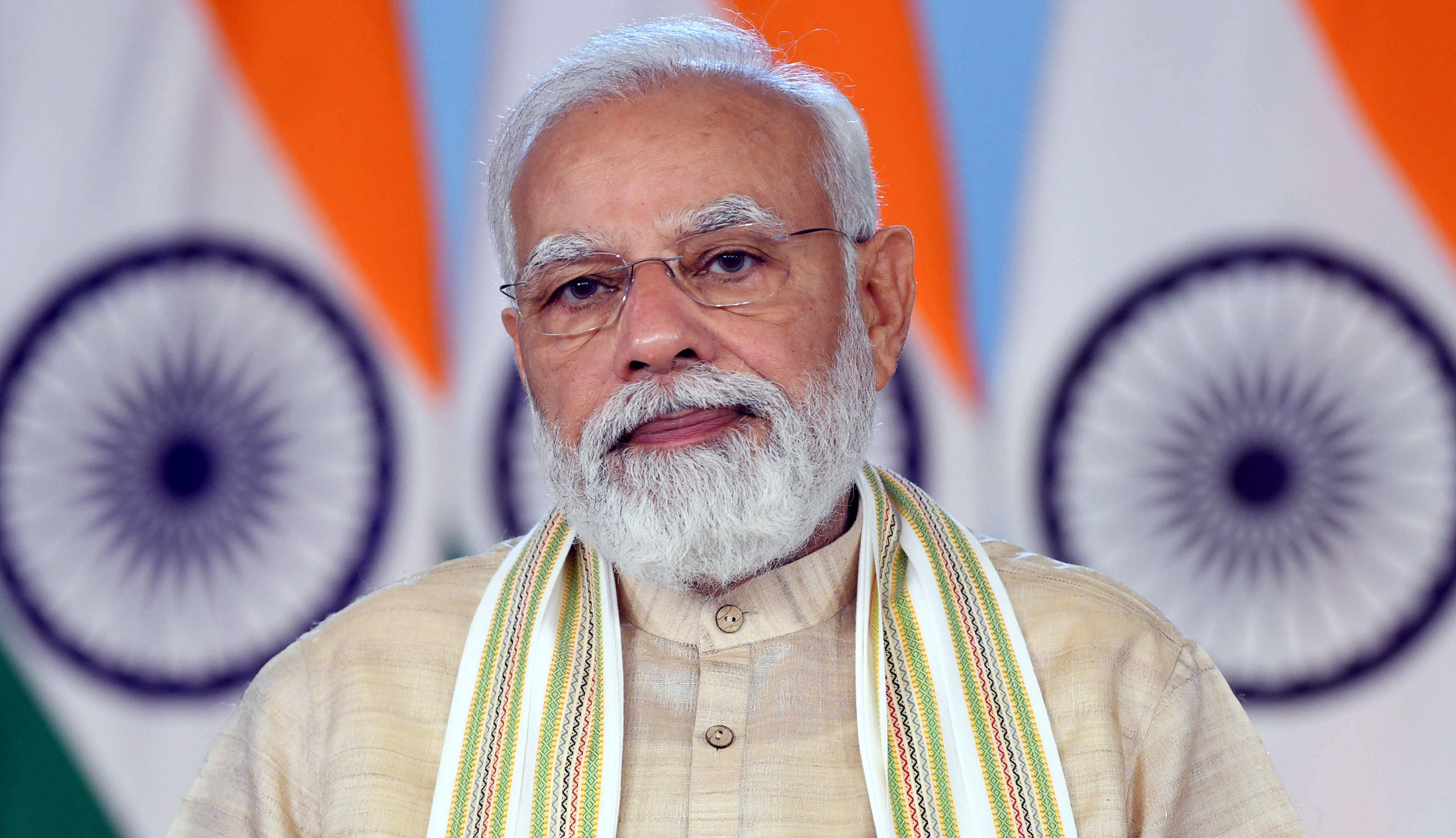
Prime Minister Narendra Modi kickstarts his campaign for the upcoming assembly elections in Delhi by launching multiple developmental projects worth Rs 4,500 crore in the capital. As the air quality in Delhi remains in the 'very poor' category for the fourth consecutive day, PM Modi also addresses the issue and assures that traffic deadlock will be resolved by 2025. The political parties engage in a war of words over the alleged irregularities in the voter registration details, with BJP accusing AAP of trying to delete names of certain communities from Delhi's electoral roll.